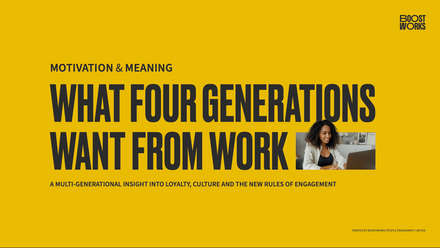8 tips on using employee benefits to support flexible, agile and remote working
Since the start of the Covid-19 pandemic, flexible working opportunities have been at the top of the business agenda.
Arrangements such as agile or remote working, job sharing or shorter working weeks have been shown to not only benefit your employees by promoting a healthy work-life balance, but also help to boost staff morale, reduce sick leave, increase job satisfaction and provide employers with the opportunity to attract and retain a richer and more diverse skilled workforce.
In fact, research by Manpower Group Solution shows that nearly 40% of global candidates put flexible work arrangements among the top three factors they consider when making career decisions. So how do employers adapt their benefits offerings to promote and support flexible, agile and remote working?
Top tips for implementing a robust benefits strategy
1. Review the type of flexibility that you are offering – from flexitime to job-sharing, remote working to compressed work weeks or agile working arrangements (the ability to create a dynamic work environment for your employees).
A one-size-fits-all approach will not necessarily work for all your employees, so consider carefully what type of flexible working arrangements work for your business and what you can therefore offer. The greater the flexibility and imagination, the more you can appeal to the varying needs of a diverse workforce and attract otherwise untapped talent.
2. Consider the needs of demographics such as parents or care givers. Benefits options such as emergency childcare or adult care cover for employees who are caring for friends or family members will go a long way to helping support the flexible working environment.
3. Employees’ equipment needs in a flexible working environment will vary depending on individual situations and preferences. Think about offering equipment loans or grants to enable employees to buy the equipment they need to work effectively. Some may do their best work at a desk, others prefer a more nomadic lifestyle.
4. Investigate whether stipends may be suitable, allowing employees to choose which benefits are most appropriate for their needs and working arrangements. A membership for the gym near the office will not be a big attraction for someone who predominantly works from home, but a credit, voucher or stipend scheme just might.
5. Your current benefits offering may not promote or encourage a flexible working environment. For example, season ticket loans will probably not be relevant for those who work remotely. Instead, consider including options in your benefits such as grants to cover childcare costs or to purchase office equipment.
6. Research shows that 45% of people who transition to remote working arrangements regularly work longer hours and it is important that employees feel seen and heard by their employers and additional commitments are recognised.
Consider introducing time tracking software so employees can keep track of their working hours and offering time in lieu for additional hours worked. In addition, consider whether your remote, agile and flexible workers may need training in skills such as time management, work life balance or communicating effectively with colleagues.
7. Consider how to promote inclusivity among remote, flexible and agile workers. For example, regular video calls or online events can help boost morale for those working long hours from home, as can sending them care packages. Consider introducing team building remote events such as employee step count competitions to boost mental and physical wellbeing through access to fitness tracking software provided by the company.
8. While flexible working is invariably beneficial to businesses in reducing overheads, consider how this might affect those working from home. Employees may appreciate top up payments to assist with added electrical, heating or other costs associated with working outside of the office, especially during the current cost-of-living squeeze.
Flexible working arrangements invariably remove invisible barriers to jobs, boost morale and increase physical and mental wellbeing, so it is important to ensure your benefits meet the needs of an increasingly diverse workforce.
Fundamentally, those employees that feel properly supported by their employers, whatever their chosen working environment, are more likely to be fully engaged in their roles.
Supplied by REBA Associate Member, ApiaryLife
Life stage and life event support delivered by experts with legal backgrounds.








